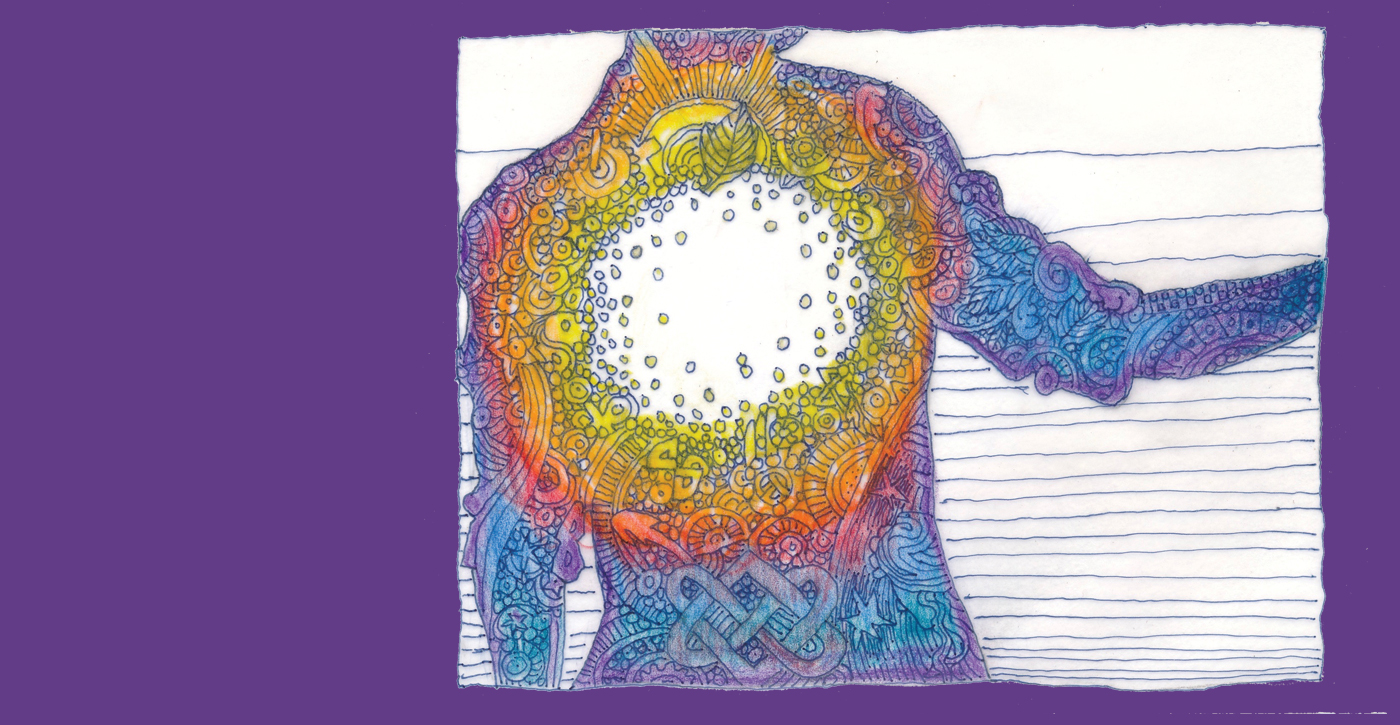I do a 3 to 5 a.m. shift once a month at a homeless shelter that is run by a coalition of local churches. I’m the freelance Quaker, filling in a hole on a Catholic night. The wee-hours duty is neither as tough nor as selfless as it might sound. I get a lot out of this giving.
I think of it as taking place in "the kindness of the night." According to this Jewish mystical concept, the night in the hours immediately following midnight is said to be kind. This is the time when a crack between worlds opens, a time of fluid boundaries, a mystical space of time. It is conducive to study and clarity. It is rich with possibility.
The light of the night as I drive to the shelter is indeed kind, differently so in different seasons. In summer the shadows of trees are deep, soft, large. In winter, if it has snowed, the light reflects off virgin snow back up into the sky, making it flannel-gray instead of midnight black. In all seasons, no one is about. Car headlamps are so rare as to be exclamations of light in the quiet dark. And so I don’t mind waking up sleepy once a month to do this.
The shelter never really closes, even though it has an official season when the homeless may sleep inside its doors rather than in tents out back, a place that has come to be known as "Tent City." The season runs the nine months that are not summer. But too many are in too much need for the shelter to ever really shut down.
Although the shelter never closes, it stops, mostly, at night. Like the human body, it has a 24-hour cycle. When its lights are out and guests asleep on their pallets, a certain level of activity is maintained even during the kindness of the night shift. Like the body it keeps up certain vital functions, like nutrition. Lunch, for example, gets made at night. Breakfast preparation starts at 4 a.m. for a 5 a.m. wake-up schedule. Some guests—a fair number—need to be out the door early to get to work. And it takes a while to prepare to feed anywhere from 75 to 150 people, some of whom are very young children staying with mom or dad.
My job is blessedly simple and entirely manual. I am one of four people on the early breakfast shift. We break eggs, cook them, fry up sausages that sizzle and throw off breakfast perfume. I have always wanted to cook in an industrial-strength kitchen, on a hulking stove that accommodates cauldron-sized pots and pans so heavy I have trouble lifting them to tip out scrambled eggs. It takes a long time for two dozen beaten eggs to metamorphose from a pool of yellow liquid into fluffy, slightly damp solid. I enjoy watching the eggs change character as I stir them up and on. With enough heat, time, and stirring, the eggs cook, almost imperceptibly solidifying at first, in much the same subtle way as dawn light begins to gather in the morning, impossible to detect but still slowly tuning up until it reaches some critical mass in the sky outside the shelter. The scrambled eggs at their peak set up fluffy as a cloud. The secret? Blender-mixing. Just as it will be morning outside, it will be breakfast inside, slowly and eventually.
There are other nighttime jobs. Someone has to watch over the sleepers, men and women in separate rooms. All must go uneventfully and safely for a roomful of strangers thrown together in accidental intimacy as they lay their homeless bodies down. There is always a small risk of disruptive behavior, because people cope differently with the stresses of homelessness and its hidden causes.
Even in shared space, however, the veil of sleep provides a tent of refuge. It is hard to bring myself to wake a sleeper who has asked for a wake-up call. I’m reluctant to give someone a shake and announce that it’s another morning in a homeless shelter. So I much prefer kitchen duty. Best of all is serving on the breakfast line. It’s hard for me to hear under the hood of the steam table serving area, but I usually hear well enough to catch the thank-yous and I check the faces and compare the responses to "What’ll you have?" I love it when people say that biscuits and gravy are their favorite, or when someone finds joy in a white heap of grits.
The food gets served, lunches handed out, lights on in the place, and it’s time for everybody to get going. The shelter asks everyone to be out at 7 a.m. But a daytime program will start at 9. So everyone has a place to go, even if not a home: a job, the shelter, the library, the street.
Me, I have a home to return to. At the end of the shift, as I drive back, the light has changed. It is firming up for the day to come; the shadows are different, and the kindest hours are past. At my back door, the buzzer is lit and its outline jumps out at me. I can enter with a key and not disturb anyone.
Everyone is asleep except our 17-year-old cat, waiting expectantly near the door for me, aroused by the alarm clock of his stomach. I hand out yet another breakfast, thanking him for being awake to greet me. The house is so still I can listen to him at his food bowl, quietly and methodically crunching, crunching.
——————
©2003 Marcia Z. Nelson




